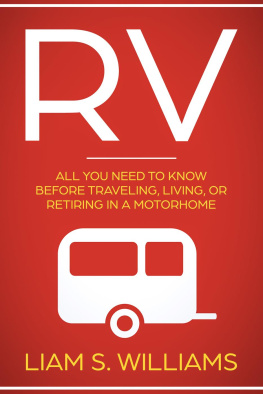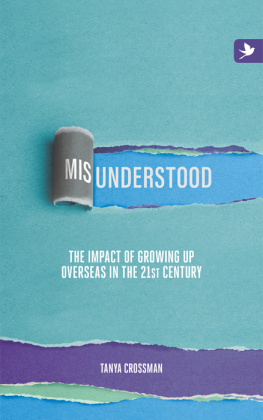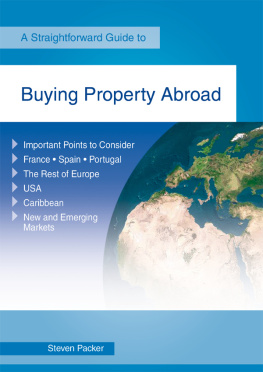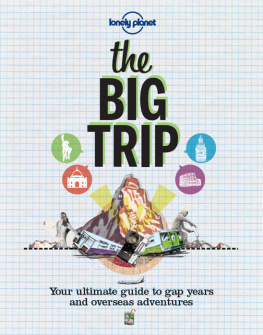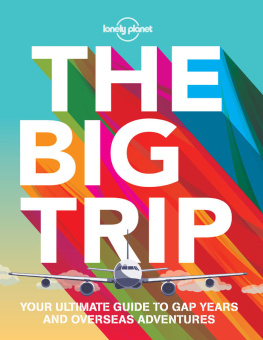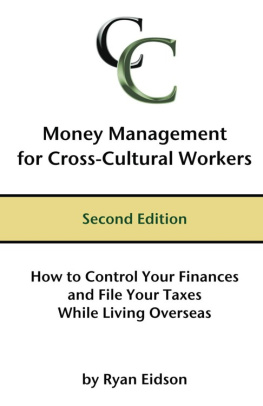Survival Kit
for
Overseas
Living
L. ROBERT KOHLS
Survival Kit for Overseas Living
FOR AMERICANS PLANNING TO LIVE AND WORK ABROAD
Fourth Edition

This edition first published by Nicholas Brealey Publishing in association with Intercultural Press in 2001.
|
|---|
Intercultural Press, Inc. |
Nicholas Brealey Publishing | Nicholas Brealey Publishing |
Hachette Book Group | Carmelite House |
53 State Street | 50 Victoria Embankment |
Boston, MA 02109, USA | London EC4Y ODZ |
Tel: (617) 523-3801 | Tel: 020 3122 6000 |
www.interculturalpress.com | www.nbrealey-books.com |
First published by Intercultural Press in 1979
1979, 1984, 1996, 2001 by L. Robert Kohls
All rights reserved. No part of this publication may be reproduced in any manner whatsoever without written permission from the publisher, except in the case of brief quotations embodied in critical articles or reviews.
Cover design by Ken Leeder
ISBN 978-1-47364-413-7
eISBN: 978-0-58546-167-0
Printed in the United States of America
10 09 08 07 06 5 6 7 8 9
Library of Congress Cataloging-in-Publication Data
Kohls, L. Robert
Survival kit for overseas living: for Americans planning to live and work abroad / L. Robert Kohls; with an introduction by David S. Hoopes.4th ed.
p. cm.
Includes bibliographical references.
ISBN 1-85788-292-X
1. AmericansForeign countriesHandbooks, manuals, etc.
2. Intercultural communicationHandbooks, manuals, etc. I. Title.
E184.2.K64 1996
303.48273dc20 95-23752
CIP
Substantial discounts on bulk quantities are available. For details, discount information, or to request a free catalogue, please contact the publishers at the addresses given above. |
To Norma, my lifelong partner in the exploration and mastery of strange lands and alien ways.
Table of Contents
Appendices
Preface
I had not read Survival Kit for Overseas Living, originally published in 1979, since the last time I revised it (1996). To my surprise, I felt it had stood the test of time rather well, and in all humility, I felt that perhaps it might even stand up to the high praise which some in the intercultural field have given it by calling it a classic. I have also been encouraged by the fact that, to my knowledge at least, none of my professional colleagues have criticized the fundamental premises on which the book is based. It is often easy to criticize when someone tries to simplify any body of professional knowledge so that the layperson can understand its basic concepts and apply them in practice, as in this case to living in another country.
These facts, plus the additional fact that Survival Kit remains the best-seller in the Intercultural Press stable of publications, have encouraged me to bring the book up-to-date again. I am most appreciative of the many people who have told me over the past two decades how useful this small book was in helping them personally adjust to another country and its unfamiliar value system. That, after all, rather than the compliments of ones professional peers, is the real test of Survival Kit for Overseas Living.
Although the target readership of this book was and remains the neophyte American about to experience a first extended period living abroad, it has also been a pleasant surprise to me to discover that Survival Kit has become one of the indispensable reference books of professional interculturalists and that it is even adopted as a textbook in university courses in intercultural communication.
Since this is true, I would like to address a word or two in this preface to my professional colleagues.
Although as Buckminster Fuller pointed out, Spaceship Earth came with no operators manual, the initial plan, when the world was sparsely populated, seems to have been that the various human groups still had enough room to allow each group to live in its own territory, securely separated from the others. They could live out their lives in comfortable isolation, relating only to members of family and their own clan. They had no need to communicate with neighboring strangers, much less with people from halfway around the globe.
Then the Ages of Exploration and of Colonization began to change all of that, as the Western nation-states set out to find resource-rich countries they could take and ownby right of their superior firepower.
Today, the impetus for contact is somewhat different, as are the means by which it occurs. We are able to travel rapidly to and communicate immediately with the far corners of the earth. The many advances in communication and transportation have meant that even the remotest parts of the world have been brought into virtually instantaneous contact with one another. Jules Vernes 80 days have become 80 hours, 80 minutes, or even the 80 seconds or less that it takes for e-mail to span the continents.
We all tend to see these changes as advancements (if not as evolution), but at the same time, they have produced greater complexity in our lives, and they have shifted the world into a new paradigm. The changes they have brought about are at least as significant as those which moved human beings from the Old Stone Age into the New Stone Age, when previously nomadic bands of hunters stopped pursuing large game and began to settle down, plant and raise grains, domesticate animals, make pottery, weave cloth, and develop their settled communities.
The current shift is, if anything, even more dynamic, for it means that instead of each group living in safe and intentional isolation (with their major contacts coming through trade for essential items or through warfare), suddenly, and without much preparation, the plan has changed. We are supposed to know how to live together in harmony and with respect for every other group in the world.
The old habits which were developed over centuries and which provided protection and security have suddenly become dysfunctional. Yet they are not easy to shake, for fundamentally, this paradigm shift means that while it was natural in the past to develop a preference for similarity as we related to people who were so like ourselves, it has now become more natural to experience variety and difference in our daily lives. And those who do have a preference for variety, difference, and a large range of choice in their lives seem to have a huge advantage in adapting to the constantly changing world. It is obvious that we need to develop new skills, different ones from those which our culture provided us while we were growing up. The skills that served our parents and our grandparents so well no longer serve us in the same way.
The world can no longer afford the luxury of a separate space for every distinct ethnic group. In the United States, just within our own lifetimes, we have witnessed a striking evolution toward a multiethnic or multicultural society. We have watched as the possibilities of contact and interaction with the great variety of peoples who inhabit the world have expanded in exciting ways. We have even come to realize that our homeland is an even more special place, because it provides the world with one of the largest experiments ever witnessed in bringing together in one place and on such a grand scale peoples from all over the world. It is an exciting, hopeful experiment, made all the more difficult because there are no models to emulate. We have had to write our own operators manual.
Next page


